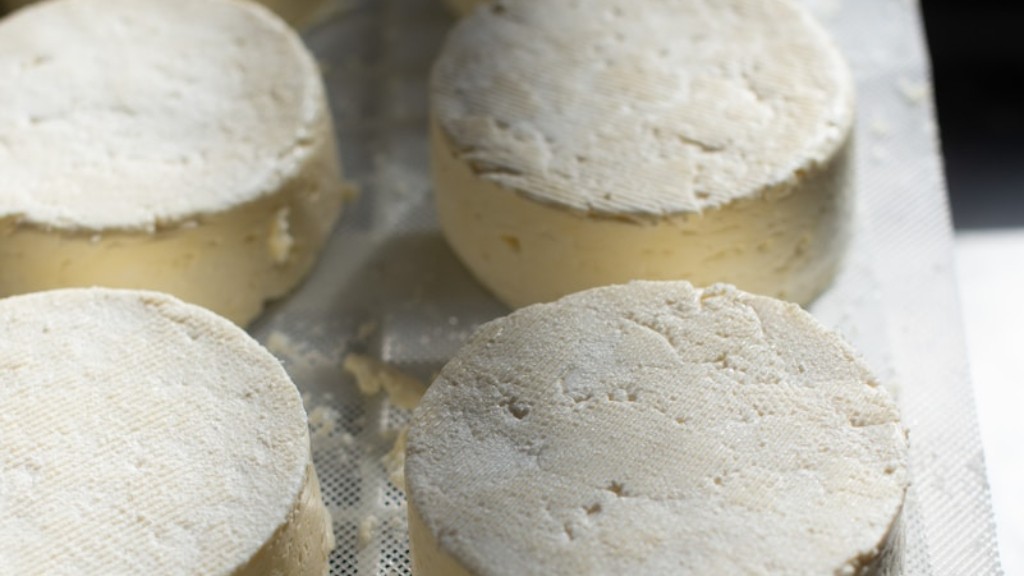It is a common misbelief that lactose intolerance and cheese consumption are diametrically opposed. Actually, the truth is that one can consume cheese, even if one is lactose intolerant, in very small amounts, depending on the type of cheese. By definition, lactose is a natural sugar found mostly in milk and products like yogurt, ice-cream and cheese. In the case of lactose intolerance, the body has difficulty breaking down these products because it does not have enough lactase, an enzyme which helps digest lactose. But cheese, when mature, contains only minimal amounts of lactose. Thus, it needs to be taken into account that the level of lactose in cheese depends largely on its type and the age at which it is being consumed. So, it is possible to have cheese, even if someone is lactose intolerant, to some extent.
Cheese which contains low levels of lactose includes varieties like cheddar, Parmesan, Swiss and mozzarella. Other examples of cheese that can be chosen are Roquefort and feta cheese, the first being one of the oldest types of blue cheese and the latter a salty cheese made from goat’s or sheep’s milk. Some soft cheeses like blue brie and camembert are age-sensitive and contain much more lactose, so those who are lactose intolerant should eat them in small amounts. If a person suffering from lactose intolerance is looking for alternatives, plant based cheese can be a great choice. Products like vegan cheese, almond cheese or coconut cheese, which contain no animal products and animal derived enzymes, can be a better alternative.
It is important to note that cheese also contains proteins and fat which can be beneficial for the person with lactose intolerance, as they help them meet their Nutrition needs. According to the Dietary Guidelines for Americans, protein and fat can help prevent nutrient deficiencies and improve digestive health, so it would make sense for a lactose intolerant person to partly include cheese in their diet in progressive amounts. Lastly, if a person who is lactose intolerant consumes cheese, they should look out for symptoms like bloating, burping, gassiness, cramps or diarrhea afterwards, to evaluate if their body is able to tolerate cheese.
Cheese Consumption Benefits for Lactose Intolerant People
Cheese, when consumed with caution, can benefit a person who is lactose intolerant in different ways. It presents an opportunity to obtain calcium, which is an essential mineral. Calcium is important for the building and maintenance of strong bones, muscle contraction and nervous system regulation. Cheese can be an especially vital contributor to a person’s calcium intake, if they are lactose intolerant. Furthermore, for vegetarians or individuals following a vegan diet, cheese is a particularly valuable source of protein and fat, and contributes to a balanced and varied diet. Lastly, cheese can be a great addition to a person’s diet if they are lactose intolerant because of its divine taste, which can substantially contribute to the culinary experience and make it more enjoyable.
Cheese Consumption and Possible Risks for Lactose Intolerant People
In spite of the benefits, consuming cheese can also be a source of risks for the lactose intolerant person. From the perspective of nutrition, if this person consumes cheese in large amounts, they could end up getting a lot of calories, fat, sodium, and saturated fat. Moreover, considering that most cheeses contain a small quantity of lactose, it can be difficult to determine which cheese varieties they can safely consume. Therefore, the person has to be careful and pay attention to the labels, to see if the cheese contains milk ingredients, and should be aware of the amount they consume, since the person could truly be consuming more lactose than their body may tolerate.
Achieving Balance in the Consumption of Cheese for Lactose Intolerant People
Having a balanced diet contains all the nutrients necessary for one’s health, and cheese plays an important part in it. People who are lactose intolerant, however, should ensure that they don’t consume more than their body can take. Therefore, they need to pay particular attention to types of cheese which contain low levels of lactose, such as cheddar, parmesan, Swiss and mozzarella, including others. They can also turn to plant based cheeses, like Coconut or Almond Cheese, which do not contain lactose, or soft blue cheeses like Brie, Camembert and Roquefort which have to be consumed in moderation because they contain higher levels of lactose. Finally, if the person is wondering about the amount of cheese they should eat, it would be best if they consult their dietitian or nutritionist who can better guide them on their individual level of lactose intolerance.
The Significance of Getting Quirks in Check for Lactose Intolerant People
When someone is lactose intolerant, they need to pay attention to their body’s signs and adjust their diet accordingly. Especially when it comes to cheese, people should know their limits, not just in terms of the types they consume, but also in the amount of it. After they become aware of their environmental triggers, they can choose the varieties that contain lesser lactose and, as a result, lessen the intensity of their symptoms. Lastly, to maintain a healthy balance, they should look out for when their body begins showing reactions to the lactose, and should always look forward to the help of their dietitian or nutritionist.
Making Lifestyle Changes Recommended for Lactose Intolerant People
Lactose intolerant people can benefit significantly from making certain lifestyle modifications. A few of them consist of drinking a lot of water, exercising and getting adequate sleep. These activities can regulate the gastrointestinal motility, decrease the intensity of symptoms or even diminish them, and control the level of inflammation. Additionally, it is suggested that people who are lactose intolerant should limit the intake of processed foods and artificial products, as a way to reduce the symptoms. Last but not least, probiotics may also be a great idea, as they can aid the digestive system to get used to the enzymatic activity, which could help reduce the quantity and intensity of the symptoms.
Foods to Avoid and Those Recommended for Lactose Intolerant People
It is essential for the lactose intolerant person to know what type of food to avoid, so that their symptoms don’t recur or be more severe. The foods that people should stay away from when they are lactose intolerant include pastries, pizzas, desserts, ice-creams, yogurts, sour cream or milk based sauces. On the other hand, there are some recommended foods that they can indulge in, such as dark leafy vegetables, lean protein, whole grains, fruits, fortified milk, and also cheese, as mentioned previously. Moreover, people who are lactose intolerant can also include plant based yogurts and cheeses, which are free of animal derived enzymes, to combine the benefits of cheese with the cause of health.
Finding What Right Works for You as a Lactose Intolerant Person
Lastly, persons who are lactose intolerant need to realize that what works for one may not work for another, in terms of diet, exercise, lifestyle, and medications. This means that people need to find the best combinations and methods that suit their needs based upon what works for them. One good practice could be to keep a diary in which they write down their food consumption and the symptoms that follow. As a result, it would be easier to detect which foods help reduce the severity of their symptoms, which in turn could be of great help for them.


